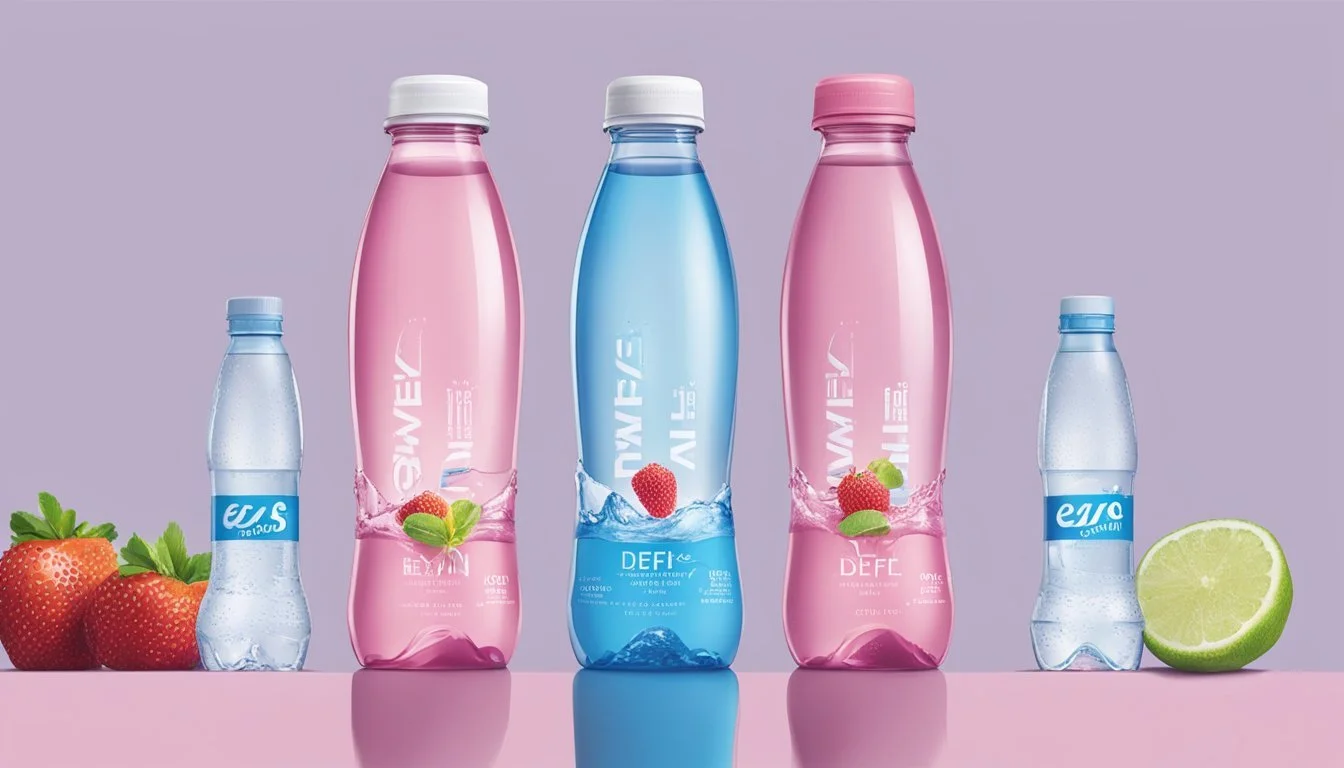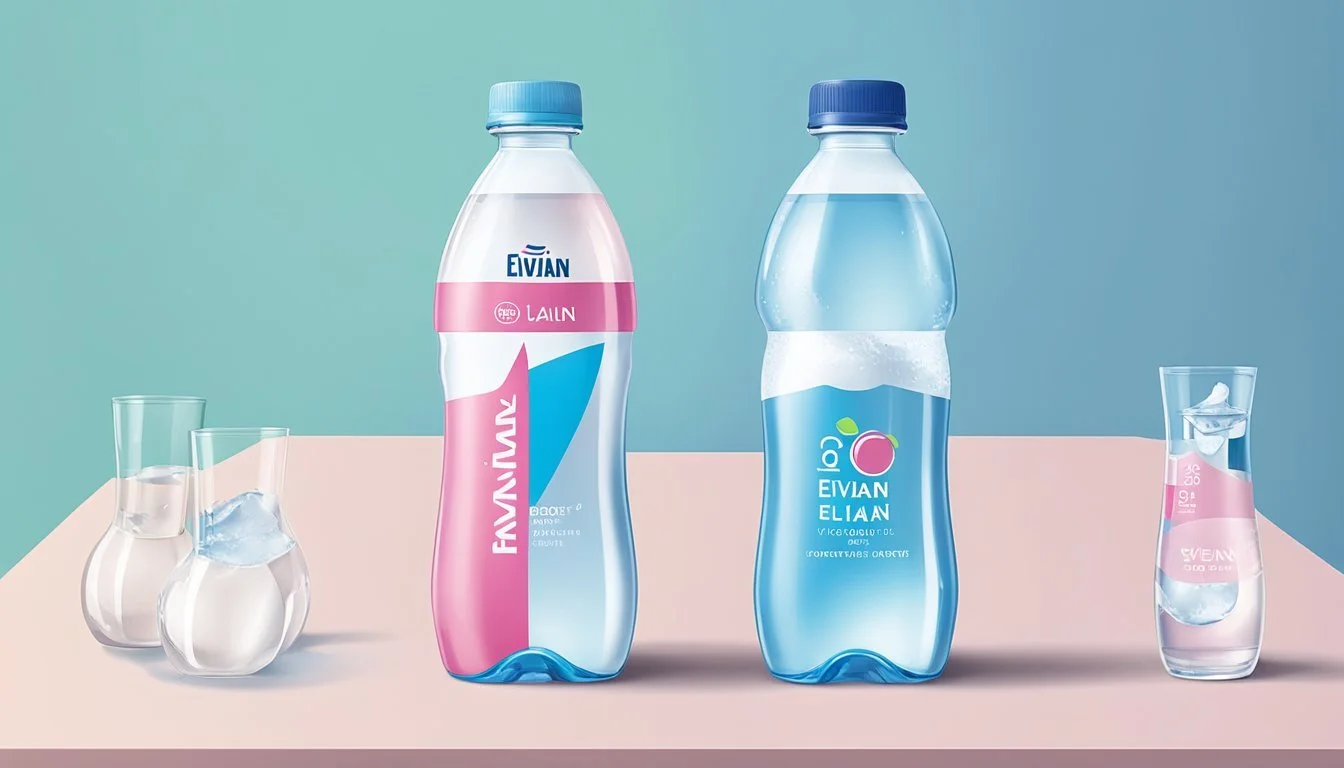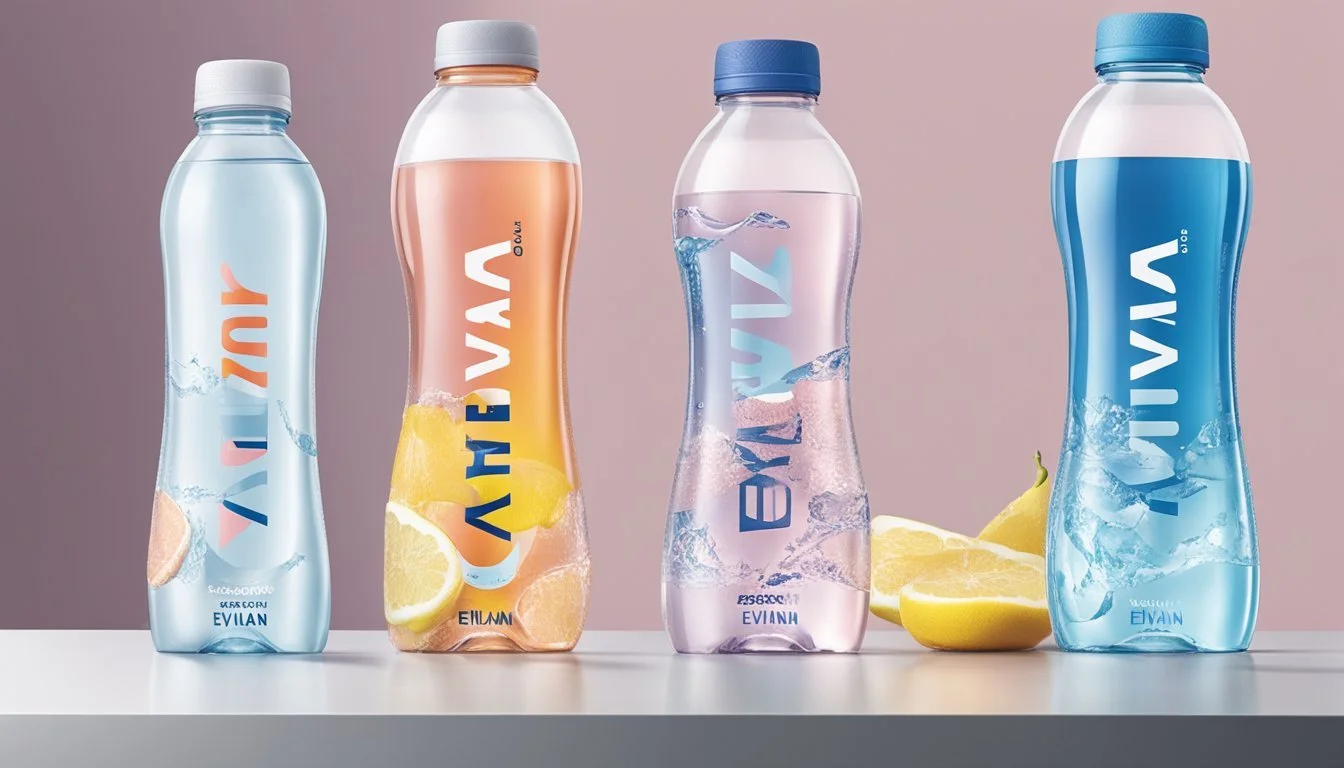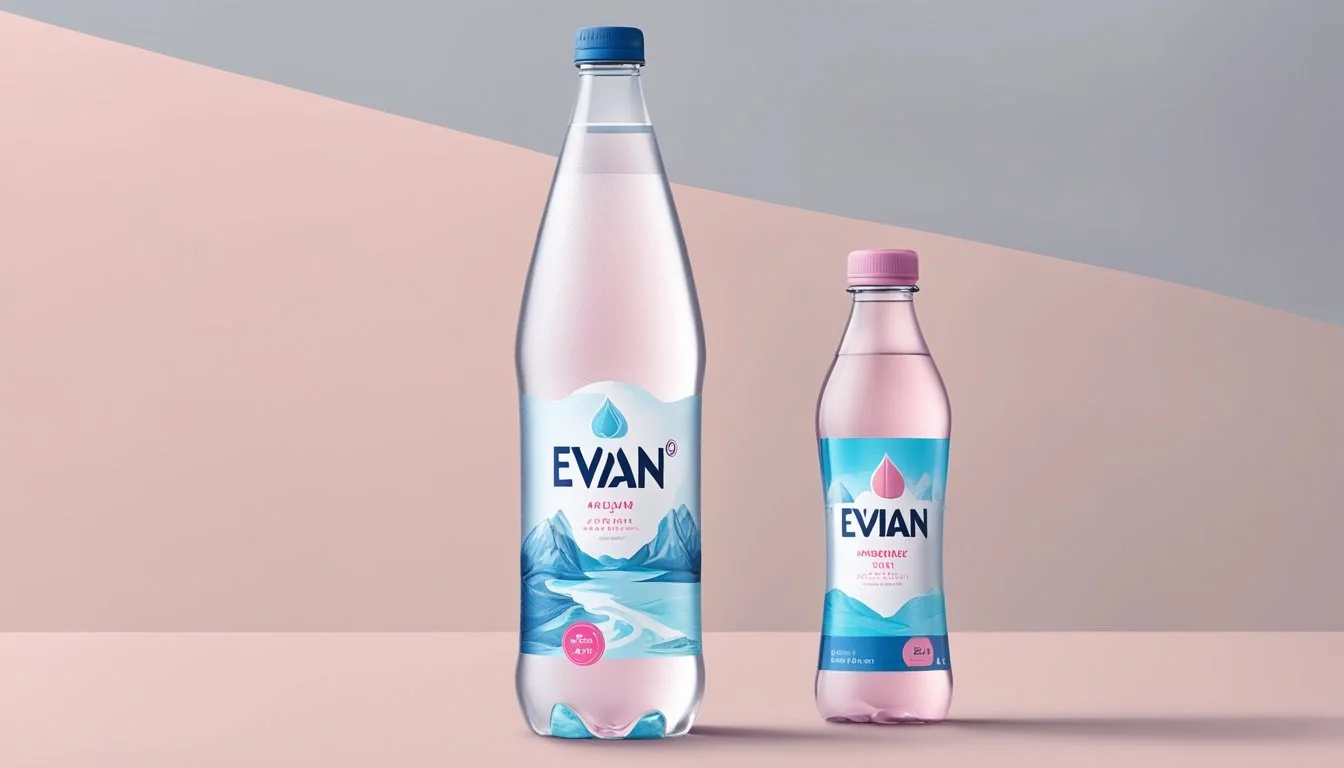Evian vs. Defy
Which Bottled Water is Better for You?
When it comes to bottled water, Evian and Defy often come to mind as popular choices among consumers. Evian, sourced from the French Alps, is known for its purity and a slightly alkaline pH of 7.07. Defy, on the other hand, distinguishes itself with a unique focus on functional benefits, often enriched with electrolytes.
While there are numerous factors to consider when choosing between these brands, including taste, source, and additional benefits, one key point of comparison is the pH level. Evian's slightly alkaline water can be soothing for those looking for a neutral taste profile, whereas Defy's enhanced composition with electrolytes might appeal to athletes or those seeking extra hydration support.
Ultimately, the choice between Evian and Defy boils down to personal preference and specific needs. For those prioritizing natural purity, Evian stands out. Defy offers added benefits that might make it the better choice for an active lifestyle. By exploring these differences, consumers can make an informed decision about which bottled water best suits their daily requirements.
Overview of Bottled Water Industry
The bottled water industry has seen exponential growth over the past few decades. This section delves into its evolution and identifies key players dominating the market.
Evolution of Bottled Water
Bottled water, initially a luxury item, has become a staple product worldwide. The industry began gaining momentum in the 1970s when health and fitness trends drove consumer demand.
Innovations in packaging, such as plastic bottles, made it more accessible. The recognition of tap water's safety issues further catapulted bottled waters to mainstream success. Furthermore, the globalization of popular bottled water brands broadened its reach.
Climate change concerns have recently spurred the development of eco-friendly packaging solutions. Brands now emphasize sustainable practices to attract environmentally-conscious consumers.
Key Players in Bottled Water Market
Several key players dominate the bottled water industry. Companies like Nestlé Waters, PepsiCo (with its Aquafina brand), and Coca-Cola (under Dasani) lead the market. These companies have extensive distribution networks and strong brand recognition.
Evian, sourced from the French Alps, and Fiji Water, from an artesian aquifer in Viti Levu, are renowned for their unique sources and premium positioning. Each brand’s marketing strategy highlights its water's purity and mineral content.
Emerging brands are now also targeting niche markets, such as alkaline waters and flavoured options. This diversification enables them to cater to a broader audience, further expanding the industry’s footprint.
Defining Water Quality
When comparing Evian and Defy, it's essential to examine critical aspects such as mineral content, pH levels, and overall purity to determine which offers superior quality.
Mineral Content and Health Benefits
Mineral composition plays a crucial role in assessing the health benefits of bottled water. Evian is known for its high calcium and magnesium content, essential minerals for maintaining bone health and metabolic function. Calcium in water supports bone density and cardiovascular function, while magnesium aids muscle function and energy production.
On the other hand, Defy prioritizes purified water processes that may strip some natural minerals but aim for nutrient-rich fortification through added electrolytes. Consumers looking for health benefits should consider the balance and sources of these essential minerals in their water.
Importance of pH Levels
The pH level of water is a significant indicator of its acidity or alkalinity, with a pH of 7 being neutral. Evian has a slightly alkaline pH of 7.07, which can be beneficial in maintaining the body’s pH balance and supporting digestive health.
Defy, however, focuses on offering water with varying pH options, including those closer to a neutral pH of 7. This flexibility allows users to select water that fits their dietary needs and personal preferences. The importance of pH levels is substantial as it affects the flavor and compatibility of the water with the body's natural pH levels.
Assessing Purity: Contaminants and Filtration
Purity in bottled water is critical to ensuring it is safe for consumption. Evian is renowned for its natural filtration process through glacial sand, which helps maintain a high purity level devoid of contaminants. This process ensures that the water retains its natural mineral composition without unwanted additives.
Defy uses advanced reverse osmosis filtration, a method that effectively removes impurities and contaminants, ensuring high quality assurance. While this can sometimes strip beneficial minerals, Defy may reintroduce them to enhance health benefits. Evaluating purity involves examining the steps taken to maintain water safety and the presence of any potential contaminants in the final product.
Comparing Evian and Defy
Evian and Defy are two notable bottled water brands, each offering unique qualities in source, taste, health benefits, and environmental impact. This section examines key aspects that set these brands apart.
Source and Natural Filtration
Evian originates from the French Alps, sourcing its water from a natural spring. The water travels through layers of glacial sand, which naturally filters it, resulting in a clean and pure taste. The aquifer's location contributes to the water's mineral content.
Defy sources its natural artesian water from an underground aquifer. This process involves water filtering naturally through volcanic rock, known for its ability to remove impurities. The sourcing method impacts the water's mineral composition and taste, distinguishing it from other bottled waters.
Taste Profile and Mineral Balance
Evian water is known for its smooth and neutral taste, influenced by its journey through the French Alps. The water contains naturally occurring minerals and electrolytes, with a slight alkalinity that enhances its refreshing profile.
Defy offers a crisp and clean taste, attributed to its artesian source. It has a well-balanced mineral content, including silica and sodium, which contribute to its unique taste. Water sommeliers often conduct taste tests to highlight these subtle differences.
Health and Hydration Efficacy
The slightly alkaline nature of Evian water, with a pH of 7.07, is believed to aid in digestion and hydration. Its mineral content supports overall well-being, making it a popular choice for those seeking health benefits from their hydration routine.
Defy's water, with its neutral pH, provides excellent hydration and helps maintain electrolyte balance. The presence of crucial minerals ensures that drinkers receive necessary nutrients while staying hydrated. Both brands are excellent choices for maintaining daily hydration levels.
Environmental Sustainability
Evian has made strides in environmental sustainability, using 100% recycled PET plastic for their bottles. By 2025, they aim to have all packaging fully recyclable. Additionally, their production site will be carbon-neutral by 2024.
Defy emphasizes its environmentally friendly packaging, often using boxed water options to reduce plastic usage. The brand prioritizes eco-friendly practices, focusing on minimizing its carbon footprint and promoting sustainability throughout its production process.
Packaging and Brand Image
Evian's iconic bottles and association with the French Alps have cemented its status as a premium brand. The sleek design and focus on natural spring water contribute to its reputation for quality.
Defy projects a modern and eco-conscious brand image. By using innovative packaging like boxed water, they appeal to environmentally conscious consumers. The brand's emphasis on artesian water from volcanic rock enhances its distinctiveness in the market.
Production and Distribution
Evian and Defy have distinct approaches to sourcing and purifying their water, as well as different levels of global availability and accessibility. These factors influence consumer preferences and brand loyalty.
Sourcing and Purification Processes
Evian water originates from the French Alps, where it is naturally filtered through glacial sand over a period of 15 years. This process enhances its minerality, contributing to its taste and perceived health benefits. The water is collected at the Cachat Spring and undergoes minimal processing to maintain its natural integrity.
Defy, in contrast, sources its artesian water from deep underground wells. The water is naturally filtered through layers of rock, which helps retain essential minerals. Defy implements a rigorous purification process to eliminate any contaminants while preserving the water’s natural qualities. Both brands emphasize minimal intervention to retain natural benefits, but their sourcing locations and filtration techniques differ markedly.
Global Availability and Accessibility
Evian has a strong global presence, available in over 150 countries. It markets itself as a premium water brand, often found in high-end hotels, restaurants, and retail outlets. Distribution channels are extensive, ensuring that consumers worldwide can access their product with ease.
Defy’s distribution network is more localized but is expanding. Currently, it is mainly available in select regions and high-end retail stores. Defy targets a specific market segment that values unique, premium water experiences. While it is not as widely distributed as Evian, its growing presence indicates a potential for increased accessibility.
Evian’s extensive distribution network compared to Defy’s localized yet expanding availability highlights their distinct market strategies.
Consumer Considerations
Choosing between Evian and Defy involves evaluating specific factors important to consumers. These include taste preferences, health benefits, and cost effectiveness.
Taste Preferences and Perceptions
Taste is a major factor when choosing bottled water. Both Evian and Defy offer distinct taste profiles. Evian is often described as having a smooth, slightly mineral taste, thanks to its high mineral content from the French Alps.
Defy, a newer entrant in the market, positions itself as a premium brand with a refreshing, straightforward taste profile. Many consumers enjoy the clean, crisp flavor that Defy provides, often favoring it over both tap water and other water brands like Aquafina or Essentia. Personal preference plays a critical role, influenced by factors like age and previous experiences with different types of water.
Health Conscious Choices
Health-conscious consumers might prioritize the pH level and mineral content of their bottled water. Evian has a pH level of 7.07, making it slightly alkaline, which can be preferred by those mindful of acidity.
Defy, on the other hand, is marketed for its balanced pH, close to neutral, making it suitable for maintaining hydration without affecting the body’s natural balance. Both brands highlight their mineral contents, with Evian known for its high levels of calcium and magnesium, beneficial for bone health. Defy’s mineral content is designed to offer a balanced profile without overwhelming any single mineral.
Cost and Value for Money
Cost is another crucial factor. Evian is often considered a premium bottled water, commanding a higher price point due to its brand reputation and source. Defy aims to provide a premium experience at a slightly lower cost.
Consumers will need to weigh the perceived benefits against the cost. Tap water typically remains the most economical option, but for those willing to pay for perceived quality and health benefits, both Evian and Defy offer value. Comparing prices and customer reviews can help decide which offers better value for money, considering both quality and personal preferences.
Final Evaluation
When comparing Evian and Defy, multiple factors come into play.
Taste and Hydration:
Evian is known for its mineral-rich taste, containing essential minerals such as calcium and magnesium. Defy focuses on core hydration with its unique filtration process. Both provide a refreshing experience but cater to different taste profiles.
pH Levels:
Evian: pH 7.2 (alkaline)
Defy: pH 7.4 (alkaline)
These pH levels suggest a slight variation in alkalinity but remain close to neutral, supporting healthy hydration.
Sustainability:
Evian has made significant strides in sustainability with 100% recycled PET bottles and a goal of full carbon neutrality by 2024. Defy also emphasizes eco-friendly practices but with less publicly available data on their environmental impact.
Market Comparison:
Other leading brands like Icelandic Glacial, Core Hydration, and Perrier offer strong competition. Brands such as Deer Park and Mountain Valley are known for their unique sources and mineral content.
Top Water Bottle Brand Features:
Evian: Known for essential minerals and eco-friendly initiatives.
Defy: Focuses on hydration and balanced pH.
Both brands have loyal customer bases and present strong cases as some of the best bottled waters available. The evaluation of Evian and Defy demonstrates their strengths in different areas, from taste to sustainability, making them prominent contenders in the bottled water market.
Each brand caters to unique preferences, highlighting the diverse selections available for consumers.
More About Evian
Evian vs Mountain Valley Spring Water: Which Bottled Water is Better?
Evian vs Richard's Rainwater: Which Bottled Water is Better?
Evian vs Whole Foods Italian Still Mineral water: Which Bottled Water is Better?







